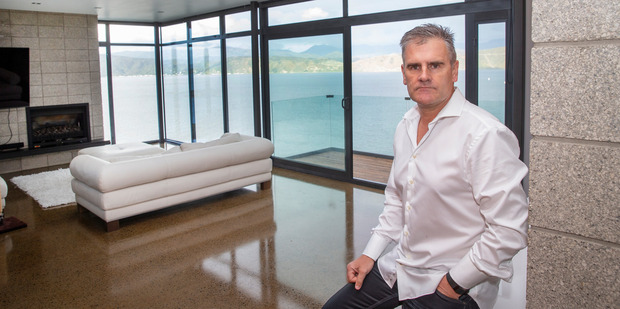PHOTO: Matthew Ryan. FILE
Matthew Ryan’s foresight regarding the property market downturn proved remarkably accurate, as he made predictions even before its onset in 2021. At that time, he anticipated a potential decline of up to 20% in house prices. According to data from the Real Estate Institute (REINZ), current house prices are 17% below their peak.
Matthew Ryan, who boasts ownership of over 100 properties, now envisions two divergent scenarios for the future of house prices, contingent upon the outcome of the October election. If the National party or a National-ACT coalition emerges victorious, he anticipates a 5% to 10% price surge, driven by the restoration of tax advantages for investors and increased confidence among landlords.
However, in the event of a Labour-Green or a Labour-Green-Te Pāti Māori coalition win, Ryan predicts a potential further decline of 10-15% in prices. He went so far as to declare that if the latter scenario unfolds, he would liquidate all his New Zealand properties and relocate elsewhere, stating, “You can literally quote that, because that’s what I will do.”
Ryan pointed out that numerous investors are currently holding on by a thread, reluctant to sell during a market downturn, and are pinning their hopes on a more investor-friendly environment promised by a National-led government. The removal of a crucial tax advantage that allowed investors to deduct mortgage interest payments from rental income was particularly significant for many landlords with substantial debts.
Despite recent declines, CoreLogic data reveals that house prices remain $179,000 above pre-Covid levels. When asked about the concerns of first-time homebuyers regarding housing affordability compared to three years ago, Ryan emphasized the pivotal role of property investment in New Zealand’s economy and as a secure method for wealth creation. He warned against undermining this pillar, as it could have severe consequences similar to what occurred in Argentina, where wealth eroded, leading to hyperinflation and loss of confidence.
Ryan also emphasized the “wealth effect” generated by rising house prices, which prompts homeowners and investors to spend more as they feel wealthier due to the appreciation of their assets. He cautioned against a prolonged “poverty effect” resulting from falling house prices, which could negatively impact retailers, hospitality businesses, and the overall economy.
While Ryan has not made a final decision on his potential relocation, Australia is a likely option. According to REINZ data, the peak median house price was $925,000 in November 2021, but by July, it had dropped to $770,000, a decrease of $155,000 or nearly 17%. When adjusted for inflation, this drop was closer to 24.1%, as noted by an REINZ spokesperson.
Ryan pointed out that the investor market has been severely impacted, with valuers struggling to accurately assess common investment property types due to limited transactions in the past year. Nevertheless, he, like many commentators and economists, believed that the market had reached its bottom, barring any unforeseen global shocks or repercussions from China’s deflation and housing market issues.
Sofia Vergara owns her and Joe Manganiello’s entire $44M property empire | WATCH
In his hometown of Wellington, Ryan observed signs of recovery, with auctions frequently featuring three or four competing buyers, a notable improvement from the recent past. While Labour continued to allow investors to deduct mortgage interest payments on new-build investment properties to incentivize investment in the housing stock, Ryan opted to continue purchasing existing properties, as they provided greater opportunities for value addition compared to brand-new properties, which were primarily designed as family homes.
Ryan remained optimistic about the likelihood of a Labour-led government, considering it “infinitesimally small,” comparing their potential comeback to a historic sporting event.
SOURCE: THE POST














